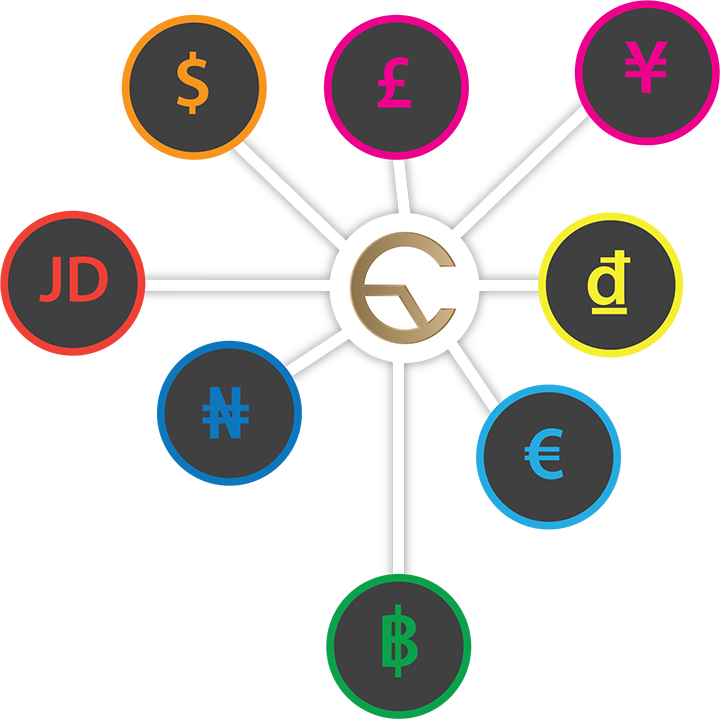The WEAPD is a non-nuclear deterrent.
Throughout the patent the Random Encryption Tag Generator is referred to as the Worqour Encryption and Processing Device (WEAPD). This is to indicate that the device does more than just produce encryption tags. Those tags are then applied to a business method.

The business method the WEAPD performs, using the encryption tags, is explained in the patent and elsewhere in this website.
Each transaction requires accessing specific information contained in a number of WEAPD data banks.
Some databanks store the actual encryption tags ready for use.
Another database contains the codes allocated to the worlds financial institutions that are licenced to use the WEAPD/Worqour currency and payment system. These financial institution codes are automatically paired with their corresponding national mHRs.
There is also a small database containing the official mHRs of all the participating nations. After being supplied by a government these mHR figures are manually entered into the system. Even thought the mHRs will be commonly known the transfer procedure specifically requires the WEAPD to access those national mHR figures exclusively from it’s own secure databank.
Two financial institution and two national mHRs are required to complete a transfer transaction.
The removal of a Financial Institution’s Code
In the event one of the licensed financial institution takes advantage of, or abuses the system the authority managing the WEAPD/Worqour system would exercise it’s authority and penalise that institution accordingly. In very severe cases that penalty could amount to the termination of the institution’s licence and the removal of the institution’s trading code from the WEAPD databank. The removal of this code from the database immediately excludes that institution from the WEAPD/Worqour payment system and terminates that institutions international trading ability.
The removal of a national mHR.
The removal of a national mHR from the system is also possible. However, the removal of a national mHR has very serious implications. The removal of a national mHR effectively isolates an entire national economy. Institutions located either inside or outside that economy cannot transfer funds to each other through the WEAPD/Worqour currency and payment system once a national mHR has been removed.
It’s unlikely the authority administering the WEAPD system will ever remove a national mHR of its own accord. However, the administering authority would grant a request made from a recognised international body for example; the United Nations General Assembly or the International Criminal Court, and remove the relevant national mHR.
In meeting this request the WEAPD has the potential to function as a non-nuclear deterrent. Even just the threat to close down a national economy by removing it’s national mHR from the WEAPD’s databank may prove enough to defuse potentially disastrous global events.
UN Involvement
If the members of the United Nations General Assembly who do not possess nuclear arms were to control a globally accepted and fully operational WEAPD/Worqour system, the UN would receive the financial profits from the currency’s use to meet their operational costs and humanitarian needs. And for their peacekeeping efforts the WEAPD’s deterrent capabilities would finally supply the leverage, that organisation so desperately needs, to enforce the democratic decisions reached by the UN General Assembly.
Simply by using the threat to shut down a national economy the UN General Assembly could possibly bring despots or belligerent nations back into line with the global consensus and preventing wholesale destruction and loss of human life.
